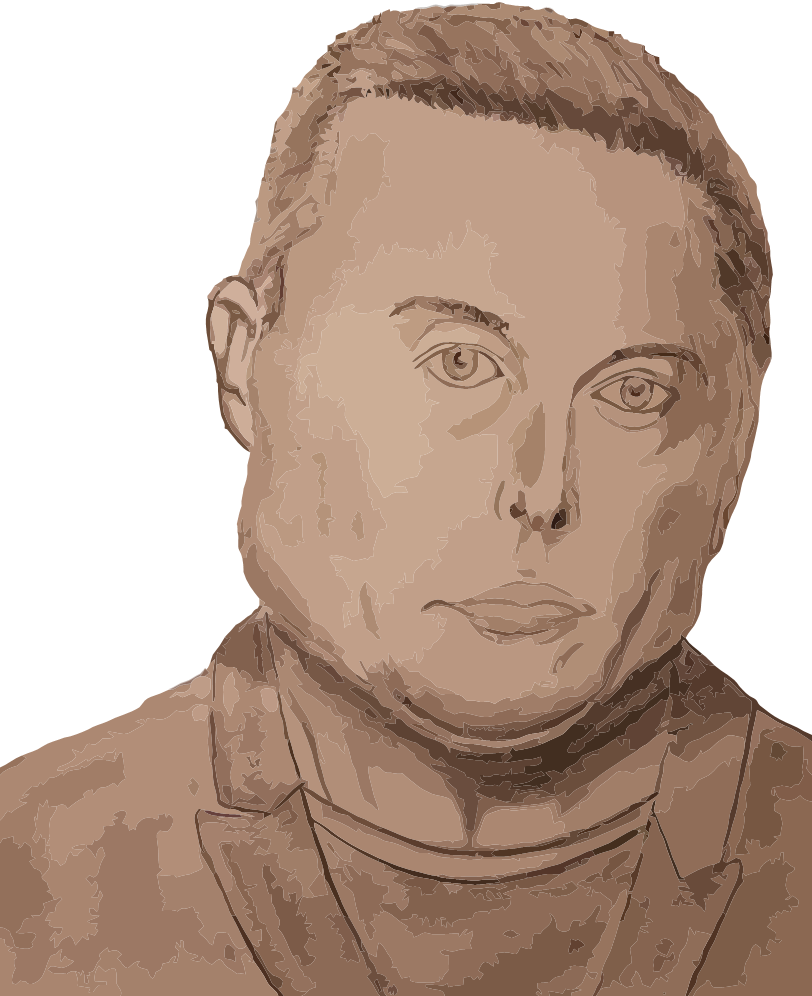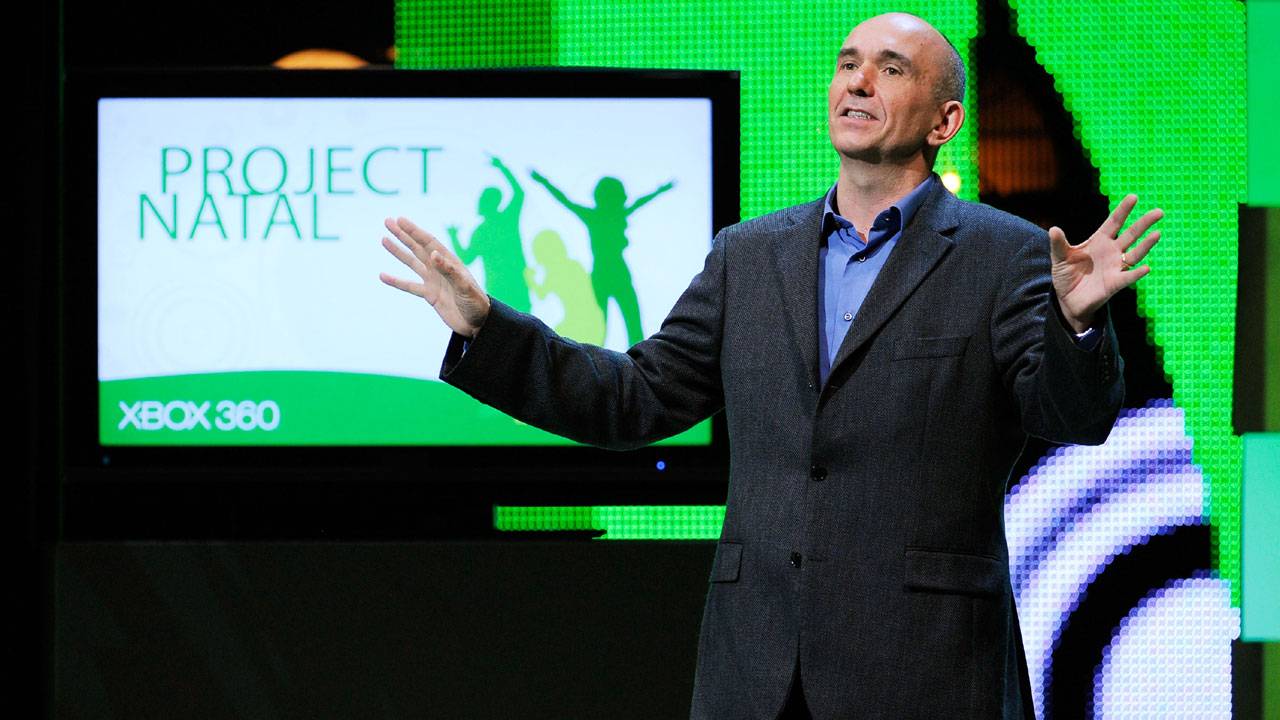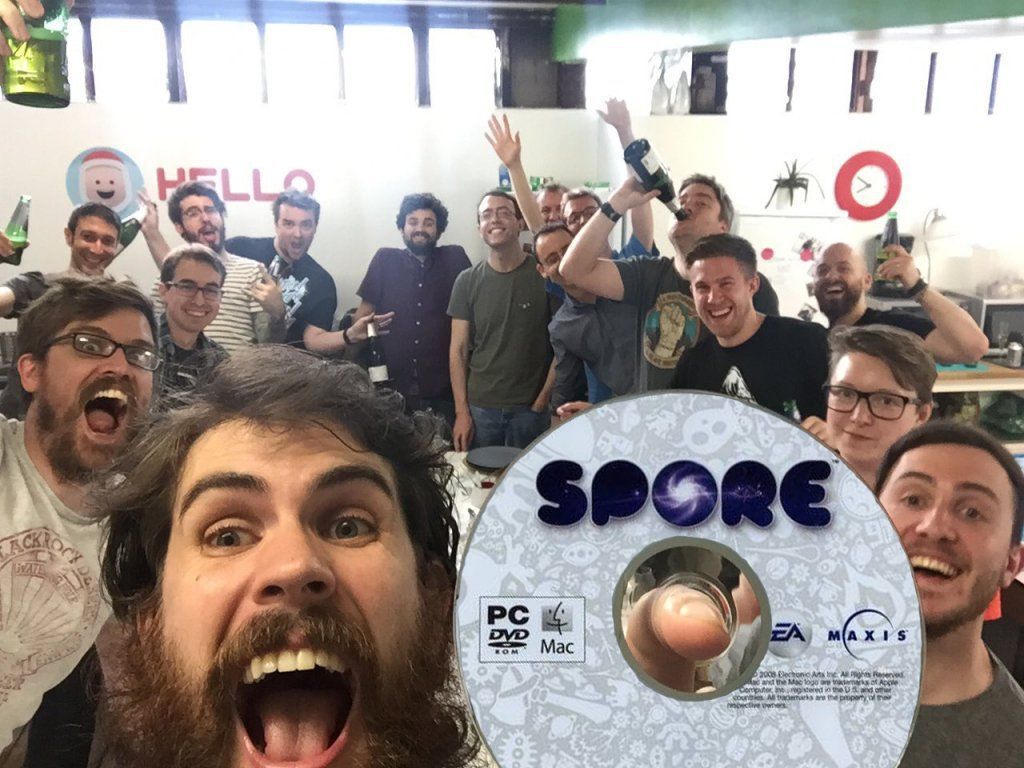Just a few things from the article:
They’re running out of money. (That’s nothing a few more ships for sale can’t solve  )
)
Cult-leader Chris orders them to make game-defining changes on a daily basis that fucks up everything for weeks. (It’s Chris’ world after all, you’re just living in it  )
)
Besides just the main game and Squadron 42, they also have a third game (medieval fantasy) in development that uses the backer’s funds as well. 
It only just occurred to me, but Chris really reminds me of George Broussard. Anyone old enough might remember the Duke Nukem Forever saga. Same kind of obsession where they think everything revolves around them and their perfect world they made up in their heads. Seems to be a common thing with ‘rockstar’ '90s game developers who’s had too much smoke blown up their asses.
Seems to be a common thing with ‘rockstar’ '90s game developers who’s had too much smoke blown up their asses.
I hate Molyneux so much and he keeps showing up to ride the next grift dragon and his masturbatory “vision” keeps getting rubes to buy in.

Remember the infamous Project Natal “Milo” demo and its groundbreaking AI technology that allowed you to interact naturally with a virtual character, but was all made up nonsense? Peter Molyneux was way ahead of his time in the techbro snake oil lube department.
I sure do.
The “Curiosity” grift was damning for
 that paid into it: “there’s a prize under all of this, pay me to chip away at what’s obstructing the prize, rubes!”
that paid into it: “there’s a prize under all of this, pay me to chip away at what’s obstructing the prize, rubes!”And now he’s been peddling both NFT and “AI” trash.
Apologists that say he just overcommits to “the vision” and falls short ignore what a fucking grifter he is.
I’d hate to come across as a Molyneux apologist, but at least Fable 1 was fun. SC can’t claim anything close to that.
This probably isn’t due to any good intentions from Peter himself though, he was tied to a studio that demanded a complete game be released, SC is just on a money treadmill and their “visionary” is free to just grift away.
Some of his older games were quite good like Syndicate and Dungeon Keeper, but the grifting became unbearable over time.
The Fable sequel that had the enlightened centrist bullshit where you had to come up with enough money to stop the apocalypse and attempts to do it in a not-evil way caused the amount needed to go up to force the issue like a typical fucking liberal that there must be a balance of so many war crimes and acts of cruelty to “get shit done.”

At least Kojima is interesting
in contrast to this: Hello Games took their space sim that was pretty shitty and sparse on release and quietly perfected it into something worth playing over the years as well as putting all their promised features in it (No Man’s Sky)
they are taking that experience and also making a co-op fantasy game that looks like Breath of the Wild with dragon/giant bird riding with a gorgeous procedural world the size of a small planet Earth
so yeah
I remember clowning on Hello Games at the time, but they really managed to turn things around. They basically showed that it’s perfectly possible for a developer to actually fix their game, add everything that was previously promised, and to go even further beyond, while releasing new content for free.
I want to love NMS so much but I always hit a cliff and get really bored of seeing the same things over and over
No Man’s Sky was the single greatest pleasant surprise for me, after launch anyway. I used to hate those guys and their
 faces during publishing day (if you can find it they really were making those faces in it) and all the bullshit launch promises that weren’t there (yet!).
faces during publishing day (if you can find it they really were making those faces in it) and all the bullshit launch promises that weren’t there (yet!).
Yeah there it is.














What’s Going on With Star Citizen’s Development?

I’m still proud of editing that one.

Star Citizen’s turbulent 12-year development isn’t a secret. A quick search on YouTube or Google will reveal a plethora of issues that the project has suffered since its inception in 2012. From broken promises to cut features, backers have learned to either abandon ship or strap themselves in for the ride with no final destination in sight. Frustrations are at an all-time high, and for many of those working on the game, it’s a mutual feeling.
On October 1st, Cloud Imperium Games (CIG) developer’s inboxes were hit by a new mandate from Global Head of Production Erin Roberts; those working on Citizencon deliverables must work every day, including weekends, until October 19th. The mandate forced employees to work 19 straight days for a minimum of 8 hours per day up until Citizencon, with TOIL (time off in lieu) being offered for the Saturday and Sunday hours worked, as well as breakfast goods and lunch being offered.
It’s a mandate that was quickly altered after staff raised questions about the legalities surrounding it. So, instead, CIG opted to give employees Sunday off if they meet the minimum threshold of 56 hours worked from Monday to Saturday – a change that would still be illegal in UK law if CIG’s employee contracts didn’t contain an opt-out agreement of the 48-hour weekly limit. In addition to the sudden change, Insider Gaming had also asked for comment on our original report on the mandate, which seemingly prompted an email sent by Erin Roberts to staff to also give employees October 21st off as a free company holiday. Perhaps it was just a weird coincidence, but it’s a gesture that some employees say likely wouldn’t have happened if the news of the mandate wasn’t going to be made public.
Most staff saw it as a bandaid over a bullet wound, saying that the company needs a complete overhaul to survive. Some workers think that CIG has already passed the point of no return, with its future heading in an unavoidable crash course due to its mismanagement and overspending. Over the past couple of weeks, I’ve spoken to over a dozen past and current employees on CIG’s current situation, which gives a brief insight into the company’s internal workings and possible future.
As of 2022, according to its financials, the company has spent $637 million on development, with 2020 – 2022 averaging over $106 million a year. Assuming that the company continues spending around $100+ million a year, it doesn’t take a mathematician to realize that the $790 million raised so far at the time of writing is on the verge of, or has likely, run out. It’s an assumption felt by both current and former employees at the company, who say they have been experiencing the effects of apparent dwindling funds these past 12 months.
Earlier this year, CIG quietly laid off an estimated 100-150 staff members at its Austin and LA offices. The company had hoped the move would go under the radar because affected employees were told to sign Non-disclosure agreements, which prevented them from announcing their departure on social media. Former employees said those who refused to sign were told they would not get any form of severance.
Undoubtedly, the information about layoffs hit the internet because of those who refused to sign NDAs or decided to speak to the press. The information on the layoffs eventually forced CIG’s hand, and the company issued a statement revealing that “a small number of positions were eliminated” and that it had “decided to co-locate as much development as possible.”
Current staff members also felt the financial burden, with wage increases being frozen and the prospect of career progression seemingly being halted, all as the cost of living continues to rise. Some employees tell me they are now struggling to make ends meet, leading some to contemplate leaving the company and questioning their future in the industry entirely.
“But at least we have baristas serving us coffee here,” one employee joked, referencing the over-the-top coffee bar that takes up a large portion of the 9th floor of its new Manchester building.
According to sources who believe backers’ money could be spent much more efficiently, the coffee bar is just one example of CIG’s unnecessary spending habits. Spending tens of thousands of pounds on custom furniture and oversized props isn’t unusual, sources say, with management justifying its spending habits because it’s “pushing the boundaries of game development.” Its Manchester office, which is still under construction on one floor, consists of custom wall paneling, doors, and even desks to make employees feel like they are living in the Star Citizen universe. One employee described the office as “almost like a space version of Willy Wonka’s factory” that “caters to taste over functionality.”
“Pushing the boundaries of game development” is often a phrase used by management, said sources, who use it repeatedly to explain CIG’s unorthodox game development processes. This includes rationalizing almost all processes of the development pipeline, including creative to its teaching processes on how to work on CIGs Star Engine, a heavily modified version of CryEngine that has been the cause of years of delays and pushbacks. Staff describes the engine as Frankenstein, a mishmash of parts that is difficult to work with at the best of times, never mind when features are added, changed, or removed daily.
Both current and former staff say that one of the fundamental issues at CIG is the creative process, which will see the head honcho of CIG, Chris Roberts, make game-defining changes daily that can cause weeks of issues. Roberts is relatively well-known in and out of the Star Citizen community for being a perfectionist at the best times. Still, developers feel that his constant changes in vision and scope have become one of the most significant burdens to Star Citizen, Squadron 42, and CIG as a development studio.
Staff say that this isn’t just on the prominent game features either, but down to the minutest of details. They said that decisions that should take a matter of seconds creatively can sometimes take hours, or even days, due to his micromanagement. “I’ve genuinely been sat in meetings that got derailed for 30 minutes so that the placement of objects that players are likely never to interact with could be discussed in detail,” said one former employee, “there’s just no actual focus on getting the game done,” they continued.
“Sometimes the most basic features can be reviewed by him [Roberts] half a dozen times, for it then to be scrapped or changed on the 7th review,” said another employee. The constant changes in scope are made worse by inappropriate deadlines, many of the employees said, which will see months’ worth of work expected in weeks or even days, which still ultimately runs the risk of being scrapped. Cult-Like Culture
The constant creative changes, micromanagement, poorly optimized engine, and lack of standard development processes have led many experienced developers to leave CIG in recent years, with some of those I spoke to preferring a more traditional form of gaming development. CIG’s change in experienced staff has undoubtedly had a knock-on effect on its culture, with sources saying that the studio now has one of the strongest cult-like mentalities in the entire industry.
It’s the result of CIG’s own doing, which will see experienced staff replaced by younger and cheaper developers, who’ll find it difficult to learn from more experienced staff because there aren’t any. One source went on to say that they are aware of some people who were hired simply because they were fans of the game.
“It’s created an unhealthy place to work; you can’t push back on anything,” said one current developer. “They are repeating mistakes that other companies made 20 years ago, which contributes to the shortcomings of their ambitious features,” said a former developer.
Most experienced staff will leave for one reason or another within a year, which has created a studio where a large portion of its staff will have Star Citizen as their first shipped game. The Future Of Star Citizen
It remains to be seen how CIG will continue developing its games as its funds seemingly dwindle, but the studio is actively seeking additional funding and ideas to prolong development.
Earlier this year, Microsoft was given a brief presentation for Squadron 42, CIG’s spin-off campaign of Star Citizen that consists of around 20 different chapters (levels) of various lengths. It’s understood that the plan for Squadron 42 is to get it out of the door as soon as possible, with directors of the company hoping the influx in cash will sustain Star Citizen’s development and help to push Squadron 42 as a multi-game series, which will see the game’s story span over several different episodes. As for when Squadron 42 will launch, I wouldn’t want to guess, but it’s understood that the game has only just made it to its “feature complete” stage, despite the claims last year.
Other ideas to fund Star Citizen, including more ships at higher prices, will not surprise those familiar with the game’s development. However, one potential oddball is a third game in development themed around a medieval fantasy. Sources said that the details of the project are slim, but it is a means for CIG to release more than just one style of game, they said. Nevertheless, whether or not the backers of Star Citizen want their money to fund a fantasy game is a question for another time, as is how long the game will take to develop.
Cloud Imperium Games is set to hold its annual Citizencon on October 19th-20th, 2024, with fans planned to see a demo of Squadron 42’s Chapter 1, which was internally said to “get our community on board with the fact they are getting very close to Squadron’s full release.”
Of course, fans should also expect to see a lot more of Star Citizen. But as the past 12 years have shown us all, nothing is set in stone.
Clown Imperium.









